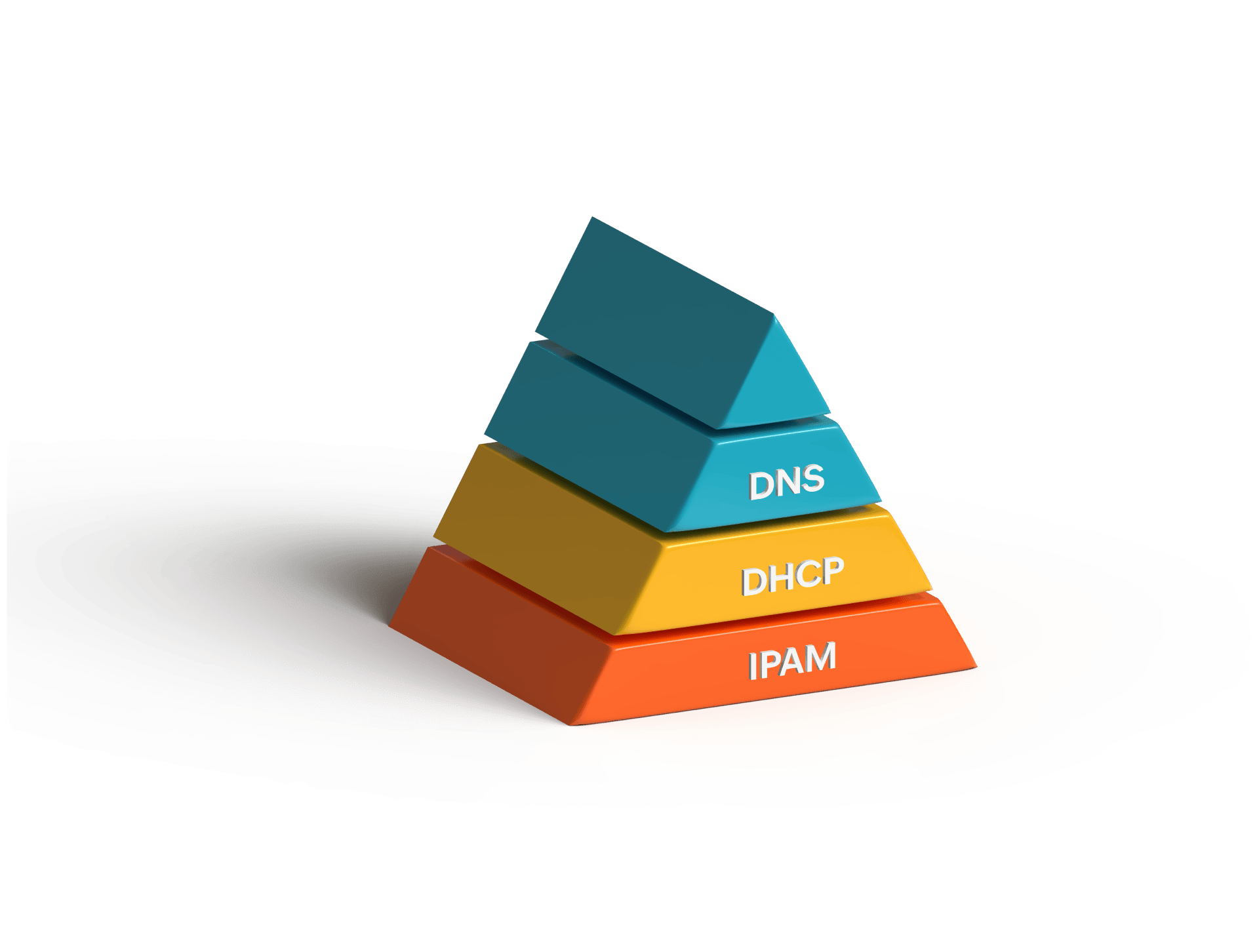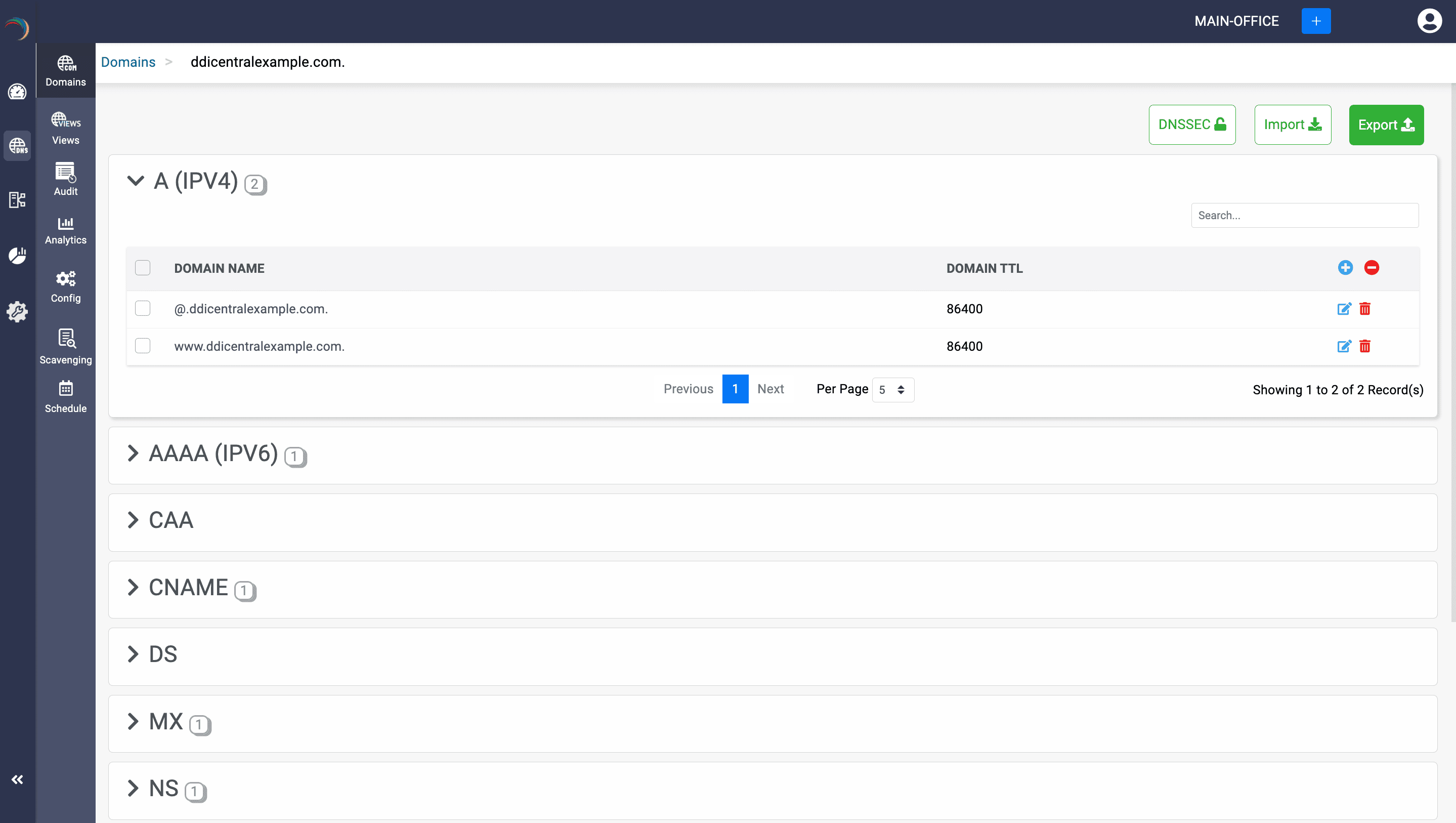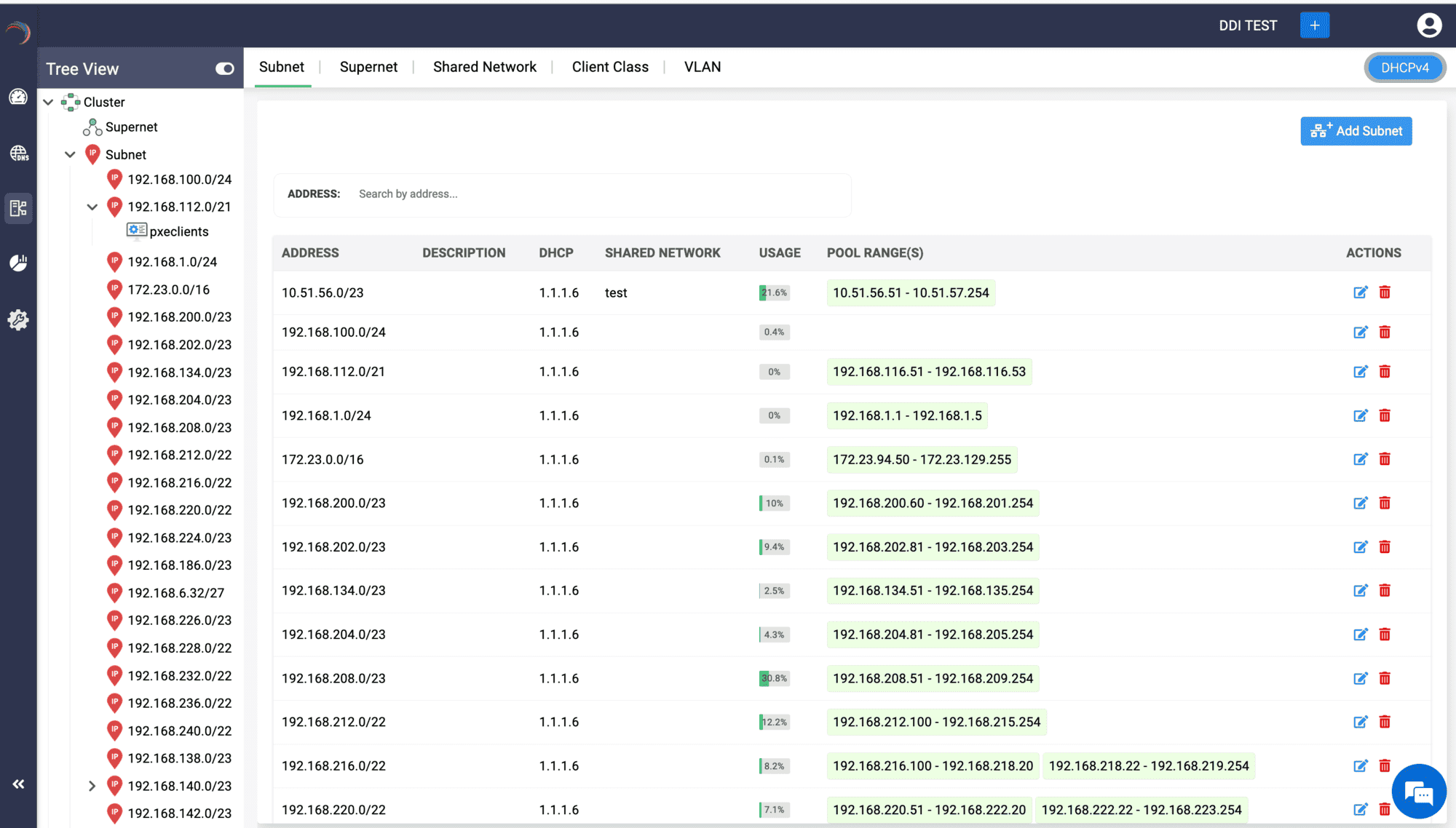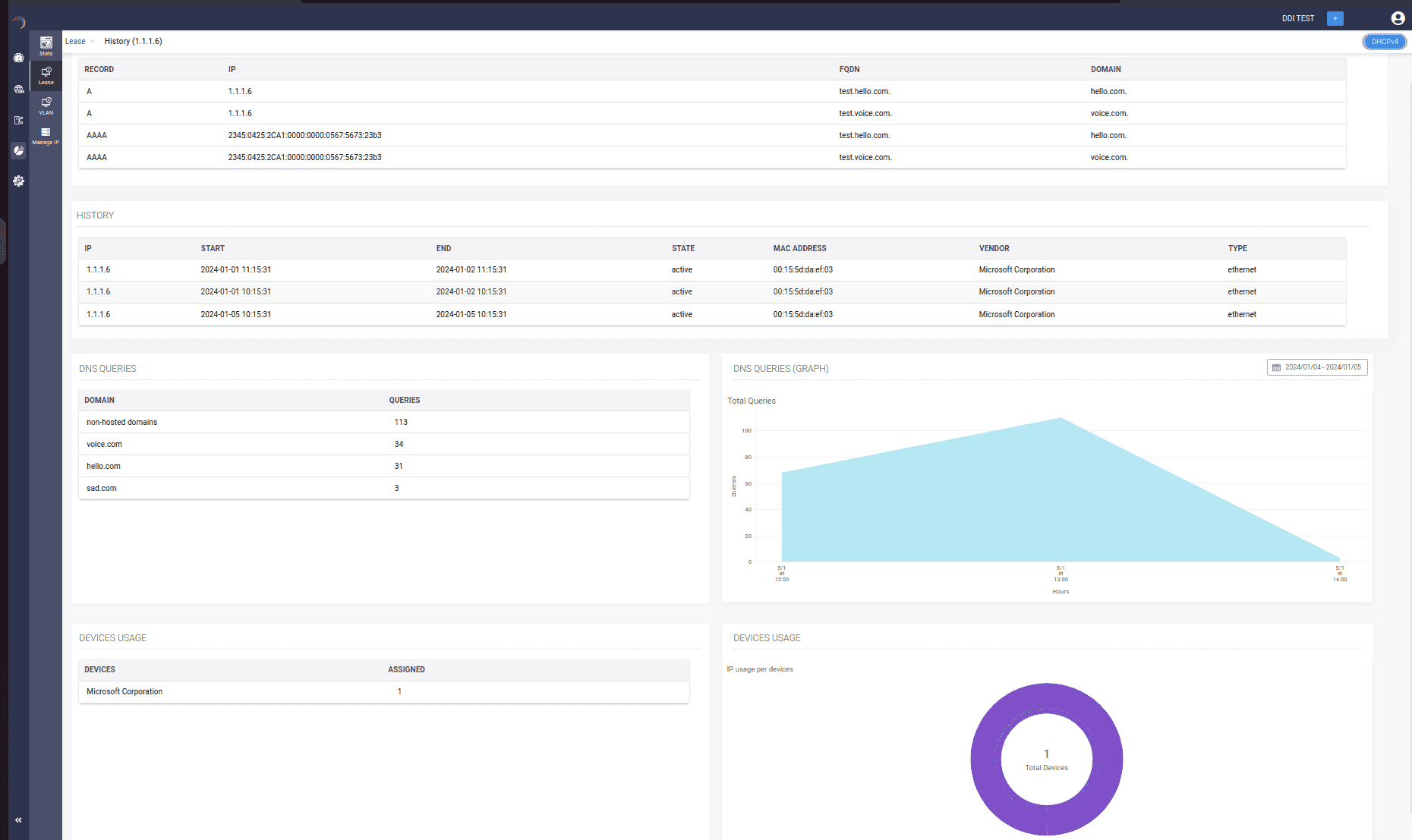
What is DDI?
DDI which stands for DNS, DHCP, & IPAM is a network management solution that consolidates the three core networking services—DNS, DHCP, and IPAM—into one platform. For handling multiple DNS queries, configurations, and managing IP addresses while preventing any sort of malicious attacks, an all-in-one DDI management platform is crucial for better service, security, and efficiency.
As enterprises grow, the number of new IP addresses increases, while IPv6 allows for even more IP addresses and domains. Managing each service on separate platforms can be challenging. A DDI solution simplifies the tasks of tracking, assigning, alerting, and managing domains, DNS queries, and IP addresses through a unified dashboard.
DNS
DNS servers responds to a DNS query by translating a domain name into an IP address and checking if the domain is safe or a threat.
Example: clouddns.manageengine.com -> 142.250.189.174

DHCP
DHCP dynamically assigns IP addresses to devices connected to a network. For instance, when a mobile phone or laptop connects to the network, it requests an IP address from the DHCP server, which then assigns an available IP address from the IP address pool that matches the device's attributes according to the set DHCP fingerprinting policies

IPAM
IPAM offers real-time tracking and management of IP addresses. Through a dashboard, administrators get an overview of their entire IP address inventory and can track the IP addresses that are available, active, or reserved, plus identify the devices using them.

How can a DDI solution benefit your organization?
Simplify network management: IT administrators can effortlessly manage network services with an all-in-one DDI platform by analyzing DNS queries, configuring domains, assigning IP addresses, and detecting rogue servers and malicious attacks.
Improve visibility: A DDI solution provides a dashboard with insights on available and fixed IP addresses, devices connected to the network, DNS query load on primary and secondary servers, and the number of queries received by the DNS resolver. It also notifies administrators of any rogue servers or attacks.
Save time: A DDI solution saves considerable time for the network management team by combining and managing all three network services, eliminating the need for separate management solutions and software switching.
Cut costs: An all-in-one solution for core network service management is more cost-effective than separate software for each core network service.
Empower better security: DDI solutions help secure both private and public DNS servers from excessive queries or malicious domains, enhancing the security of your organization's data. Additionally, administrators can control which domains can access the network and block unauthorized ones.
FAQs about DDI
1. How important is automation in DDI solutions?
Automation is a key feature in DDI solutions, helping automate tasks like assigning IP addresses, managing lease histories, and responding to client and server requests. Automating these tasks reduces manual labor and errors, enhancing efficiency.
Can DDI solutions integrate with existing network and security management systems and tools?
Yes, DDI solutions can integrate seamlessly with existing network management systems like ITSM and SIEM solutions.
3. How do DDI solutions address IP address exhaustion and IPv4 to IPv6 migration challenges?
DDI solutions manage IP addresses by reclaiming unused addresses and supporting IPv6 migration through dual-stack deployment and IPv6 address provisioning.
4. How does DDI support bring your own device(BYOD) and Internet of Things (IoT)?
DDI facilitates dynamic IP address assignment for BYOD and IoT devices and implements access control list (ACL) policies to apply access limitations to specific services, ensuring only specific users connect with domains and blocking suspicious end users.
